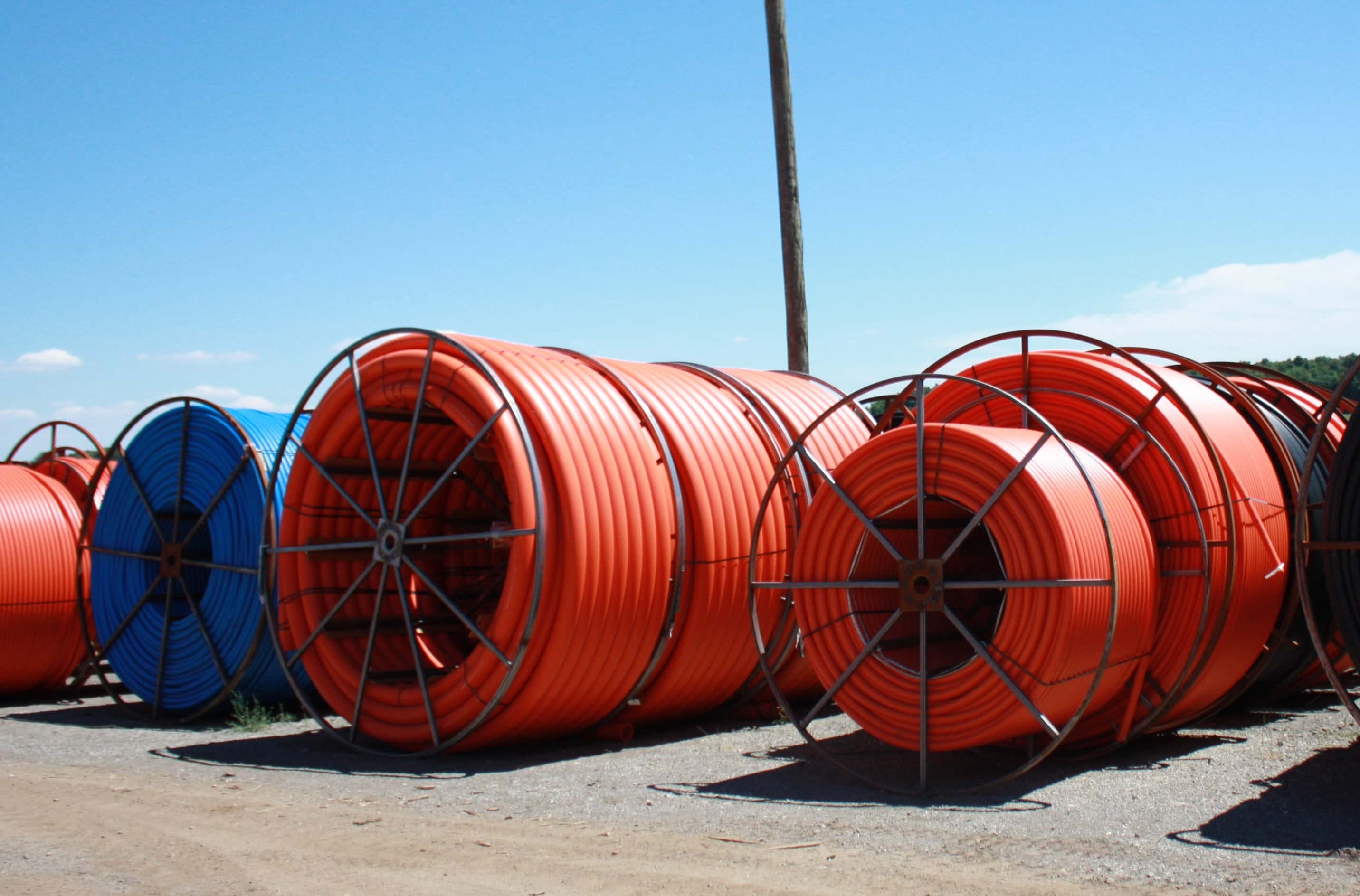The Future of American Plastics HDPE Pipe Manufacturing: What You Need to Know
Wiki Article
Recognizing the Key Conveniences of HDPE Pipeline for Water and Wastewater Management
Using HDPE pipe in water and wastewater administration presents numerous benefits that merit factor to consider. Its phenomenal sturdiness and long life expectancy make it a preferred selection for several projects. Furthermore, the material's resistance to deterioration and chemical damage improves its reliability in different atmospheres. The benefits expand past just long life and resistance. American Plastics HDPE Pipe for Oilfield. Exploring its cost-effectiveness and environmental influence exposes much more compelling factors for its extensive adoption in contemporary infrastructureExceptional Sturdiness and Long Life

HDPE pipe sticks out for its remarkable longevity and durability, making it a preferred option in water administration systems. Built from high-density polyethylene, these pipes can endure considerable pressure and stress, making certain reliable performance over time. Their robust nature allows them to endure severe environmental problems, consisting of temperature level changes and soil activities, which can create various other materials to fail.
The lifespan of HDPE pipelines commonly surpasses 50 years, providing a cost-effective solution for municipalities and sectors alike. Additionally, the material's light-weight properties streamline installation, reducing labor prices and timeframes. This toughness reduces the demand for regular repair work or replacements, additionally enhancing its financial appeal.
In water monitoring applications, the integrity of HDPE pipelines indicates fewer interruptions and enhanced solution continuity, making them important to lasting infrastructure growth. The mix of longevity and durability solidifies HDPE's duty as a keystone in reliable water monitoring services.

Resistance to Corrosion and Chemical Damages
While many materials surrender to corrosion and chemical damage in time, HDPE pipelines exhibit remarkable resistance, making them suitable for numerous water monitoring applications. This durability originates from the molecular framework of high-density polyethylene, which is naturally non-reactive and does not wear away like metals or degrade from direct exposure to rough chemicals. Therefore, HDPE is highly effective in settings with hostile materials, such as wastewater systems that might contain acids, bases, and organic solvents.
Additionally, HDPE pipes can stand up to environmental aspects such as soil acidity and saline conditions, better improving their suitability for diverse applications (custom hdpe pipe manufacturing Midland TX). Their capability to keep architectural honesty gradually decreases the risk of leakages and failings, which is crucial in ensuring the safety and dependability of water distribution and wastewater management systems. The resistance to corrosion and chemical damage noticeably contributes to the general effectiveness and durability of HDPE piping services.
Cost-Effectiveness and Financial Benefits
When taking into consideration the monetary implications of water monitoring systems, the cost-effectiveness of HDPE pipes comes to be apparent. These pipelines provide reduced setup and maintenance prices compared to standard products like metal or concrete. Their light-weight nature simplifies transportation and installment, resulting in minimized labor expenditures. Furthermore, HDPE pipes display a lengthy lifespan, often surpassing half a century, which translates to less replacements and long-lasting financial savings.The resistance of HDPE to corrosion and chemical damages lessens the demand for costly fixings and replacements. The pipes likewise support reliable water circulation, reducing energy expenses associated with pumping systems. By alleviating leakages and water loss, HDPE pipelines add to substantial economic advantages for municipalities and markets alike. Generally, the first financial investment in HDPE piping can produce substantial financial returns over the lifespan of the water management system, making it a sensible selection for sustainable framework growth.
Ecological Sustainability and Lowered Influence

Convenience and Flexibility in Setup
As a result of their unique properties, HDPE pipelines offer impressive versatility and adaptability in installment, making them suitable for a large range of applications. Their light-weight nature enables much easier handling and transportation, decreasing labor prices and setup time. HDPE pipelines can be bent and formed to fit numerous surfaces and job requirements, which is particularly advantageous in testing atmospheres.Furthermore, their resistance to corrosion and chemical damages enables installation in diverse settings without the requirement for specialized protective coatings. The capability to fuse joints creates a constant, leak-free system, boosting the overall integrity and integrity of the setup. HDPE's versatility likewise fits ground motion, minimizing the threat of damage in locations vulnerable to changing dirt. Generally, these attributes make HDPE pipes not only flexible but also a preferred selection for water and wastewater management systems.
Frequently Asked Questions
Exactly How Does HDPE Pipe Compare to PVC in Water Management Applications?
HDPE pipe supplies premium versatility, resistance to corrosion, and resilience contrasted to PVC. Its lighter weight assists in easier installation, while its lengthy lifespan lowers replacement prices, making HDPE a preferred selection in water administration applications.What Is the Life-span of HDPE Pipeline Under Typical Conditions?
Under typical conditions, HDPE pipes can have a life-span ranging from 50 to 100 years. Their resilience and resistance to corrosion contribute to their long-term efficiency in different applications, making them a trustworthy choice for infrastructure.Are HDPE Water Lines Recyclable After Their Solution Life?
Yes, HDPE pipes are recyclable after their solution life. hdpe pipe fittings Midland TX. They can be processed and repurposed right into new products, significantly decreasing environmental impact and promoting sustainability within the industry, making them an environmentally friendly choice for piping solutionsWhat Is the Setup Process for HDPE Water Lines?
The installation procedure for HDPE pipes includes website preparation, trenching, pipeline fusion get more info or mechanical signing up with, backfilling, and stress testing. Proper techniques assure a long lasting and efficient system for moving water and wastewater properly.Can HDPE Water Lines Be Used for Both Potable and Non-Potable Water Systems?
Yes, HDPE pipelines can be used for both drinkable and non-potable water supply. Their adaptability, resilience, and resistance to deterioration make them ideal for various applications, guaranteeing safe and efficient transport of water in different contexts.Report this wiki page